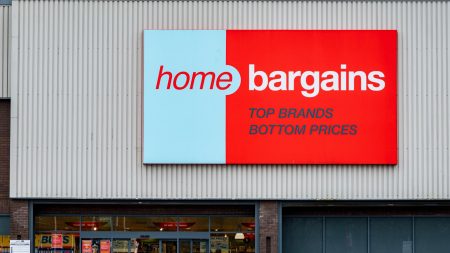The UK hospitality industry, particularly pubs, is facing a severe financial crisis, forcing establishments to implement drastic cost-cutting measures, including menu reductions and a shift towards cheaper ingredients. Kate Nicholls, chief executive of UKHospitality, a trade association representing the UK’s hospitality sector, has attributed this struggle to the Labour party’s recent tax policies, specifically referencing the halving of the national insurance contributions threshold, which effectively increases taxes for businesses. This tax increase, combined with rising wage costs and reduced business rates relief, constitutes a significant financial burden for the industry, estimated at £3.4 billion. Nicholls has criticized these policies as regressive, impacting businesses disproportionately and hindering their ability to recover from the pandemic and other economic challenges. As a result, pubs are forced to adapt by streamlining their menus, focusing on affordable dishes like stews and pies, utilizing cheaper cuts of meat, and even considering reducing staff and potentially switching to smaller glass sizes for beverages to minimize costs.
The shift in menu offerings reflects the financial pressure pubs are under. Instead of diverse menus featuring a wide array of dishes, many establishments are reducing their options to just a few core items. This simplification allows them to manage inventory more efficiently, minimize waste, and focus on dishes that can be prepared using less expensive ingredients. Stews and pies, classic comfort foods, are becoming increasingly prevalent on pub menus, as they utilize cheaper cuts of meat and can be prepared in bulk, maximizing cost-effectiveness. This trend represents a return to more traditional pub fare, driven by economic necessity rather than culinary preference. The situation underscores the delicate balance pubs must strike between offering appealing options to customers and maintaining financial viability in the face of rising costs.
Beyond menu changes, pubs are also exploring other cost-saving measures to navigate the challenging financial landscape. One such measure is the reduction of table service, a move that minimizes staffing requirements and associated wage costs. This shift represents a significant change in the traditional pub experience, which often emphasizes personalized service. While this measure may help reduce overhead, it also carries the risk of impacting customer satisfaction and potentially reducing overall foot traffic. The hospitality industry is labor-intensive, and staffing costs represent a significant portion of operating expenses. Therefore, reducing staff, even through measures like eliminating table service, becomes a necessary consideration for businesses struggling to maintain profitability.
Nicholls has strongly criticized the recent budget presented by Rachel Reeves, the Shadow Chancellor of the Exchequer, characterizing it as a “hammer blow” to the hospitality industry. The combination of increased taxes, reduced business rate relief, and rising wage costs creates a perfect storm for pubs and other hospitality businesses, significantly impacting their ability to operate profitably. The £3.4 billion tax hit represents a substantial burden for an industry still recovering from the pandemic and navigating ongoing economic uncertainty. This financial strain threatens the viability of many pubs, particularly smaller, independent establishments that operate on tighter margins and have fewer resources to absorb such significant cost increases.
The Treasury has responded to the concerns raised by the hospitality industry by promising a lower business rate in 2026. However, this delayed relief offers little immediate solace for businesses currently struggling to make ends meet. The gap between the present financial pressures and the promised future relief creates a precarious situation for many establishments, potentially forcing closures before the proposed relief takes effect. The long-term viability of the industry hinges on finding a sustainable balance between taxation, business support, and economic recovery. The current situation highlights the need for a more immediate response to address the pressing financial challenges faced by the sector.
The challenges facing the UK hospitality industry raise broader concerns about the economic landscape and the impact of government policies on businesses. The increasing costs and shrinking margins are forcing businesses to make difficult decisions, impacting not only their own operations but also the wider community. The potential closure of pubs and other hospitality venues represents not only a loss of jobs and economic activity but also a detrimental impact on the social fabric of communities. Pubs often serve as important social hubs, providing spaces for gathering and connection. Their decline could have far-reaching consequences beyond the immediate economic impact, highlighting the interconnectedness of business, community, and social well-being. The situation underscores the need for a comprehensive and nuanced approach to economic policy that considers the multifaceted impact on businesses and the communities they serve.









![Michelin-Starred Restaurants Closed by Celebrity Chefs in [Year]](https://tribunetimes.co.uk/wp-content/uploads/2024/12/08-11-2021-694314842-450x265.jpg)

